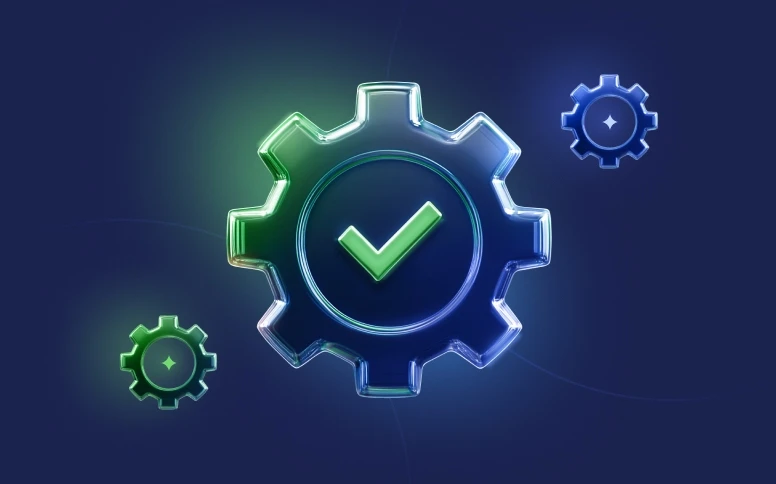Tips for Agencies Looking to Master Project Management
Project management is the heart of an agency’s workflow and output. A project manager oversees everything happening in the company, and neglecting this part can be fatal for the projects.
No matter which type of agency you are in, project management is extremely important. It prevents mistakes, allows a faster output, and ensures everything stays within the budget.
A lot can go wrong without integrating project management into an agency. Meanwhile, mastering it is heavily beneficial. In this guide, we explained some helpful tips for a digital marketing agency trying to master project management.
Importance of a Project Manager
Do agencies need a separate manager for projects? Can’t the team members do everything smoothly themselves? As much as you want it, it is nigh impossible for everything to work right in the agency.
A project manager is responsible for ensuring the team works in unison without making mistakes. They may create guidelines or strategies for specific projects for them to succeed.
Moreover, the project manager also takes care of client communication during projects. They check the demands of clients, and the agency delivers them on time. They may also:
-
Prevent any missed deadlines (alongside a work log supervisor)
-
Keep the project budget and spending in check (55% of project managers think budget overrun is the main reason for project failures)
-
Analyze the reports and performance of each project member
-
Negotiate with the clients regarding different project-related factors
-
Ensure members and higher-ups are updated with the progress using announcements and emails
-
Oversee the usage of tools and machinery (in specific agencies) necessary for the project
Yes, you may have people in charge of any (or more) of the above factors. However, a project manager unifies all these and must be present everywhere.
Step-by-Step Tips for Mastering Project Management
A project includes several steps, from client agreement to the confirmed and approved delivery of the product. Doing each step right is necessary for a near-perfect or perfect result.
Let’s show you how your agency can master project management for each step by introducing you to the process.
Process Structuring and Documentation
Structuring agency processes and documentation is the preparation-work phase. It is a step before the first step to ensure that everything stays within a guideline when the project begins.
Creating an agency process and guidelines for the projects may go as follows:
-
Building a hierarchy of management and authority
-
Making a workflow that aligns with the agency type and projects
-
Identifying goals, including company targets, team goals, and individual goals
-
Creating templates for various steps, including presentations, documentation, etc.
-
Integrating project management tools and software and readying them
-
Picking a project management approach most fitting for the agency
Ensure not to leave your team to take the lead and work on initiatives. It will only pave the road for problems. A proper process for everyone to follow is mandatory, and the project manager ensures it is ready before projects start.
Client Proposals and Follow-ups
After your agency comes to an agreement with a client regarding both parties’ demands, the project starts. After that, the below processes may follow:
-
The project manager will create the project scope. It is the moment when everyone understands their tasks, responsibilities, and required resources and strategy.
-
The client team will create a rough timeline, approximate cost, and product or service details (to show them to the client and finalize the deal on the next step).
-
Add the necessary information and project scope details in the project management apps or sites.
Successful Client Onboarding
Client onboarding is vital not only for the project at hand but also for any future collaboration. Handling this step correctly can lead to healthy collaboration and satisfied client experience.
During client onboarding, the project manager and the team must:
-
Create an onboarding plan. It can be personalized for each client
-
Understanding and discussing the needs and demands of the clients
-
Gathering information from the client regarding the pain points they face
-
Familiarizing the client with the service or product features, your agency workflow, and usual kick-off meeting procedures
-
Setting clear expectations (especially if the client has unrealistic goals, which is normal since they may not be familiar with the product).
-
Updating everyone involved, including project members and clients, so that everyone is on a clear understanding
Planning (If Needed)
In most agencies, you would have already created a plan during the client-proposal phase (or even before). The project scope and workflow that the project manager created are already part of the planning.
However, in some cases and agencies, more planning may be necessary after client onboarding. It is the phase when you understand the client’s expectations entirely. So, you can even redefine your already-made plan.
The project managers will also have to add the project cost (after calculating) and team schedules to the project scope at this phase.
Even if you don’t think that another plan is necessary, I highly recommend going over the plan you previously created. You may find places to correct or modify.
Ongoing Project and Adhering to the Process
Remember the process and scope created by the project manager before? This is the phase where they ensure team members follow it correctly. They will also observe the spending and every step of the process.
Mistakes are common, and issues may arise at any point. Project managers ensure no such things go unnoticed and solve them quickly. Aside from these, they also must do the following:
-
Updating clients regarding project progress
-
Monitoring the workloads and schedules
-
Making sure all the goals and targets that the project manager defined earlier are met
As you can understand, this is the heart of the project. So, the project manager and other managers must ensure proper collaboration and communication.
This collaboration is among various individuals and teams within the agency, agency partners, clients, suppliers, etc.
They ensure that each team member takes an equal workload and nobody is taking more than they should. They use different project management software for such distribution now. These tools also help them throughout their tasks and responsibilities.
Completion and Delivery
Once the project is over and the deliverables are ready, it is time to deliver them to the clients. This phase is not as simple as many think. Project management regarding the delivery includes:
-
Making sure that the delivery is done well. It is not always about handing out a file. It can also be a delivery of mass products. Depending on the agency, this delivery method can be different and may include several steps. The project manager oversees the whole process.
-
Analyzing project performance. You check whether your team has gotten the desired outcome and reached the KPI.
-
Paying any supplier or any other external party (i.e. the delivery transportation)
-
Confirming the payment from the client.
-
Answering any questions from the client regarding the product and invoice by checking the project spending.
Feedback
After the project performance analysis, it is time to review it. Aside from the reports, the project manager will take feedback from each team member. Project manager can use QR codes to collect feedback quickly and efficiently.
The goal of this phase is not to blame someone or a team for doing anything wrong. It is to improve the team’s performance and grow as a whole.
Project Management Methodologies: Pros and Cons
There are various project management methodologies, and picking the right one is the key to success. A project manager must know the ins and outs to implement the suitable one. Let me show their pros and cons below:
| Methodology | Pros | Cons |
| Agile | Focuses on a flexible and adaptable workflow and team | Requires excellent team synergy, understanding, and collaboration |
| Lean | It is about getting the most value while wasting as little as possible | Unsuited for agencies that handle multiple projects together |
| Waterfall | Focuses on following strict guidelines and timelines | Is not adaptable to any changes in the scope |
| Scrum | Focuses on collaboration and team synergy (similar to agile) | Not good for small-scale projects or small teams |
| Hybrid | Combines two or more methodologies suitable for the agency and project for the best outcome possible | Takes an expert project manager to plan, oversee, and execute it to the end |
Best Project Management Software
Project management software is a crying need for any agency. 77% of high-performing projects worldwide use such software. They help automate some workload, make it easy to follow schedules and timelines, and many more. Here are some popular tools you can use-
-
Flowlu: It is an all-in-one project management platform designed for agencies. It combines project tracking, client management, and budgeting tools into a single solution. Its advanced reporting and collaboration features help teams stay aligned, making it a great choice for agencies managing multiple complex projects.
-
Trello: It has an amazing interface with cards, boards, lists, statistics results, timelines, etc. You can use this tool to check the project’s progress at any time.
-
Jira: Jira is suitable for software development teams to test and fix bugs and errors.
-
Asana: Asana allows you to assign tasks to members and communicate with them. It also has a deadline reminder tool and detailed report display. I personally used and loved this one.
-
Monday.com: Monday.com offers task scheduling, task assignments, reports with charts, integration with other necessary apps and sites, and many more. It even has a smartphone app.
-
ClickUp: Aside from roadmap, reports, and scrum boards, ClickUp also has a helpful drag-and-drop feature.
Most of these tools are free for personal use. However, I recommend going for their paid options for project management both at small and large scale.
Conclusion
Project management includes many steps and tasks. However, it is imperative for an agency’s success. This industry has been rising steadily and is expected to grow up to 33% by 2027.
Mastering project management isn’t just about processes—it’s about using the right tools to bring those processes to life. Flowlu is a powerful option that agencies can rely on to simplify workflows, enhance collaboration, and deliver projects with precision.
Project management ensures that workflows are streamlined, deadlines are met, and budgets are maintained. It minimizes errors, enhances collaboration, and ensures client satisfaction, making it a key factor in an agency’s success.
Flowlu streamlines project management by offering features like task tracking, budget management, client communication, and real-time collaboration. It’s an all-in-one solution that helps agencies stay organized and productive.
The best methodology depends on the agency’s needs. Agile is great for flexibility, Lean minimizes waste, and Hybrid combines approaches for tailored results. Agencies should evaluate their team dynamics and project requirements before choosing.












